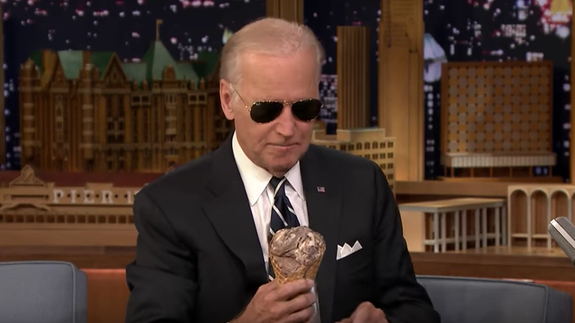When considering what went wrong with Bernie Sanders’ campaign, I don’t think it pays to overthink it. I pegged him four years ago as someone who had a compelling message and a decent amount of charisma, but no real clue about how to run a serious presidential campaign that might have a chance in hell of winning. To understand his shortcomings is really only to understand what it takes to build a winning coalition, and then to note all the ways in which he never even tried.
I did vote for him for four years ago, but after it was clear that he was defeated and only to bolster the number of progressive delegates who would be at the convention. If I had to choose a president, I would have reluctantly opted for Hillary Clinton simply because I felt she could do the job.
A President Sanders is thinkable in the same way a President Trump is thinkable, but remember how Trump operated once he was sworn in. He delegated most of the work to Congress, which was still run by the exact group of Republicans that he had supposedly vanquished in the primaries. And he didn’t ask them to figure out a way to enact his priorities. Mostly, he deferred to them and let them pursue their own priorities. In a way, the country might as well have elected Marco Rubio as far Mitch McConnell was concerned. For the most part, when Congress attempted to pass Trump’s bills, they failed. More often, they simply ignored his suggestions. In this way, they came to a truce where they’d give rhetorical support to the president and help cover his ass, but they didn’t stick their necks out to do anything they were disinclined to do.
Sanders wouldn’t have the same kind of relationship with Congress. He knows how they operate, for one thing. He’d understand who he needed to talk to to get a bill marked up and passed. But he’d have the same lack of allies and support. He’d face the same kind of reluctance to push his agenda. The main difference is that he wouldn’t get the same level of deference that Trump enjoys.
He wouldn’t simply accept this, but there wouldn’t be much he could do about it either. He could support primary challengers against Democrats who criticized him or refused to go along with him on procedural votes, but that would just anger Congress and make them less cooperative.
Essentially, he’d arrive in the White House with a divided party and the divisions would just get worse with each passing day. That’s why a post-mortem on his campaign need not be overly complicated. His second campaign was an improvement on his first in nearly every way, but not in the way that really mattered. He did need to have a more professional staff and better organization. He did need to do more outreach to minority populations. But he mainly had to win over a decent chunk of the party establishment. He could do this in two ways. One was the strategy Trump used, which was to ignore the establishment entirely and focus on winning over the base. The base would then serve as a disciplinary cudgel he could use against the establishment. But the base of the Democratic Party isn’t as reflexively anti-government as the base of the Republican Party, and Bernie was calling for more faith in government, not less. This limited the power of his anti-establishment message and made it insufficient for capturing the loyalty of the base. The Democratic base is still largely loyal to Barack Obama, and that simply wasn’t the situation Trump faced with George W. Bush and John McCain.
So, Bernie had no choice but to pursue support from within the establishment. There was no way to do that without adjusting his message. Beyond that, he had to listen to politicians who could tell him what their constituents would tolerate and what they would not. He didn’t have to be buddy-buddy with every Democrat in Congress, but he did need to build up some good will and trust.
He never seriously attempted to do this. And this is the exact reason that his presidency would never have been any more successful than his campaign. His agenda would have been dead on arrival, and he appears completely incapable of making adjustments even when the need for adjustments could not be more compelling.
Before Sanders demonstrated presidential ambitions, I was a big fan of his, but I never once thought he was a serious candidate or was remotely capable of leading the Democratic Party. Four years ago, this didn’t concern me too much as he was clearly just a message/protest candidate. What bothered me then was how so many of supporters couldn’t understand math and wouldn’t accept that he was beaten.
This time around, however, he actually had a shot at winning. He needed the field to remain large and divided, but he was assured of winning delegates almost everywhere, and only Joe Biden could say the same. His job, then, was to focus on winning over the support of other candidates so that he could get their endorsements when they dropped out. He never seriously tried to do this either. He completely blew any chance he had at a Warren endorsement, for example, and he made no headway with any of the others.
His efforts to expand his base failed as young voters failed to surge to the polls and minorities only warmed to him in modest numbers. He did nothing to allay the fears of potential Democratic allies. He failed to build good relationships with any of his competitors.
All of this was so predictable that I predicted it for four straight years.
He doesn’t know how to change who he is, and that might be a selling point for some but it’s the reason he’ll never be president. Progressives have always needed a different messenger, and maybe now they’ll be forced to find one.












